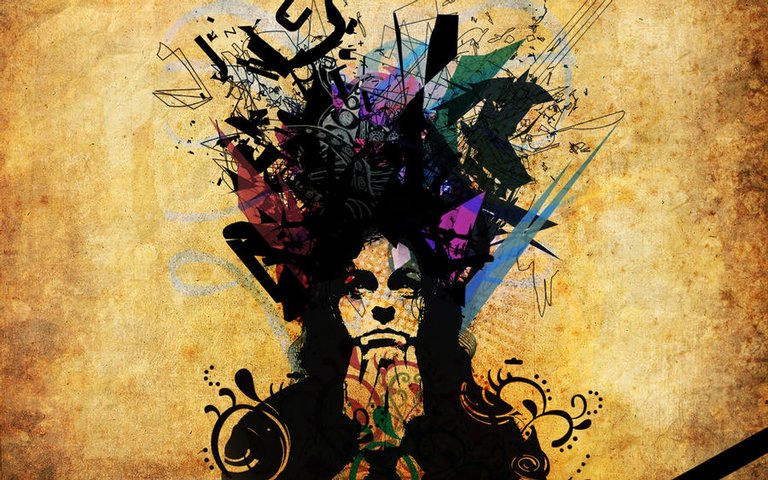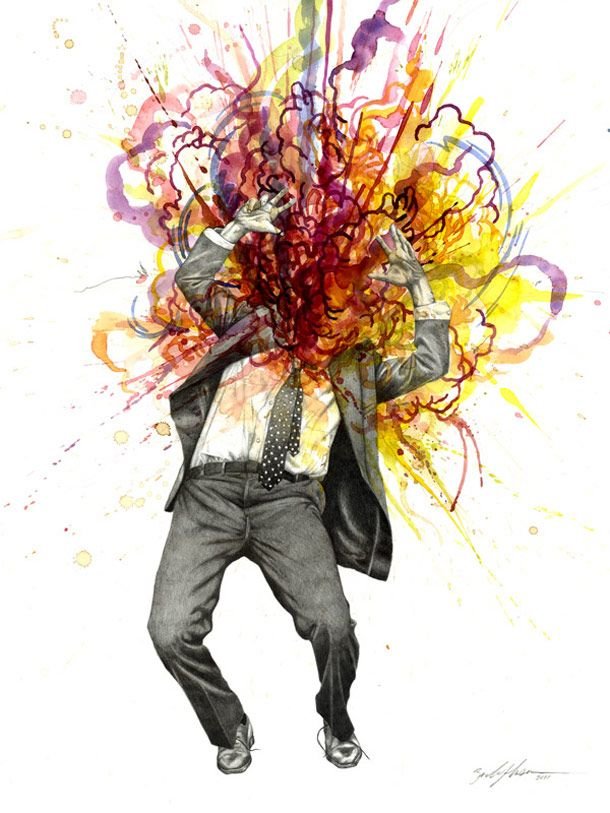Regain your confidence, take back your independence, be the sovereign individual that you are

Everywhere you look, people have attached their identities and self-worth to the most peculiar things.
The landmass they were born on. The color of their skin. The make and model of the vehicle they drive. The sports team they watch on TV.
Each of these things seems to be attached to a weird sort of passion in often otherwise passionless individuals. Say anything in their presence that even remotely resembles a criticism of Ford, or the Redhawks, or the United States of Amurica, and the reaction you’ll get will not be amusement. Nor even, “Okay, you prefer Chevy, or the Canucks, or Mexico? Let’s have a stimulating debate about this.”
No.
You will suddenly notice your relationship has become tense. They may stop talking to you and look away. They may start to subtly attack you personally, rather than debating the view you express.
Or, if your critical comment was political in nature, more often than not you’ll have something that looks like a retarded Tasmanian Devil on your hands. There is no logic behind their tirade. Merely a primal instinct that you’re attacking their tribe. It’s now their job to defend the solidarity of the group they’re convinced they belong to.
Tell me if this sounds familiar:
“We lost that game last week…”
“We showed ‘em back in ‘Nam…”
If you press them they’ll always come up with a good reason for their odd pride (or depression) in something they had no hand in creating or doing.
But as the wise man says, there’s always a good reason… and a real reason.
So what’s the real reason we’re proud to be black (or white), or American (or Canadian), or a Chevy owner, or a guy who religiously watches his favorite sports team on TV when they’re playing with the their balls, and is actually emotionally affected by the outcome?
Is it because “our” race, country, sports team or brand is the “best?” (Go on, define ‘best’ to excavate your particular bunch of ‘good’ reasons.)
Even if it is the best for some reason… why identify so strongly with it that you actually react when someone else expresses a differing preference?
Read on to discover the real reason for these bizarre attitudes. It’s actually among the most dangerous psychological principles in the history of mankind. And a massive danger to your personal freedom and development as a human being if you’re unaware of it.
According to some researchers, ‘groupthink’ is a survival mechanism we humans have built into us. Evidently, as semi-social creatures with lots of soft bits and no real claws, teeth or stingers, we’re designed to find other soft persons to band together with, and therefore increase chances of survival.
We don’t really need this to survive as much we might have once. But it’s still there. And if we haven’t really built the foundation of our own values from the core of our own being, our real “identity,” then we’re more than likely to simply “fall in” with the group among whom we find ourselves, and adopt their thoughts as our own. Because it’s easiest, and instinctual.
What are the characteristics of this disease?
- Loss of individual creativity, uniqueness and independent thought
- Identity is absorbed partially or completely by the group
- Desire for harmony or conformity overpowers all legitimate concerns, resulting in irrational or dysfunctional decision-making
- Attempts to reach consensus without critical evaluation of alternative viewpoints
- Suppression of dissenting viewpoints
- Avoidance of alternative solutions
- Purposeful isolation from out-group influence
- Unquestioning belief in the group’s morality
- Stereotyped views of out-groupers
When we feel pressure to conform, in-group thinking sets in. Even if we feel a twinge of cognitive dissonance (link) early in the relationship, we don’t want to offend anyone with a differing view, and go along with it. And if there’s a prevailing sort of “pride” involved with being part of the group, as there often is, you’ll feel the pressure to show pride as well.
And, as it happens, our behavior affects our attitude, not necessarily the other way around.
That’s where this “pride” in accidents of birth, and brand preference, and other forms of group identity come from.
What’s the thing that makes us most susceptible to group influence, and even the desire to be part of a group,you might ask?
I’ll give you a hint: It’s an emotion and it starts with F. It’s how you feel when you think you might get rejected. Or when you watch the news.

This Is Your Brain On F
According to Dr. Paul D. MacLean our brain is arranged in three layers of complexity.
First, the neocortex. The outermost layer of our brain, and most complex. This is where we solve and create. Logic, reasoning, creativity, and language live here.
This is the part where labor-saving tools, games, computers, art and philosophy are made. It’s where bombs and books and Blockchain came from. The more fearful you are, the less you tend to use this part.
The second layer is the paleomammalian complex, or limbic system. Responsible for memory, emotion, and learning.
Since all decisions are emotional, the limbic system probably plays the main role in most of our decision-making.
The core of our brain, the “basal ganglia,” is known as the “reptile complex” or “R-complex.” Its structure is similar to that of a reptile’s brain. This is the place where our brain activity goes when we’re in fight or flight mode. Fear, hate, lust, and other reptilian emotions lurk in this core structure. It also controls the autonomic nervous system (heart, lungs, body temperature), as well as basic survival behaviors like feeding, breeding, self-maintenance.
This “R-complex” is primal, animal, simple, and mostly unconscious. It’s presence stays mostly in the background until it’s triggered by threatening stimuli.
It doesn’t understand language, only image. Along with the limbic system, it’s an effective part of the brain to target if you’re advertising something.
Hint: R-complex responds to sexual images really well.
Some of the other traits associated with the reptilian portion of your brain are: Aggression, dominance, rigidity, obsessiveness, compulsiveness, worship, fear, submission.
When you’re stressed or otherwise emotional, the limbic system (and in more urgent cases, the R-complex) tends to outshout and overpower your neocortex. This is useful when you’re in danger, snapping you into survival mode.
But when these bits dominate your brain as a general state of being, causing you to behave in fear-based, pre-programmed, irrational ways, you essentially become a slave to your lower impulses and emotions.
i.e., worrying about your peer’s opinion of you (perhaps because of some deep-rooted survival instinct), and conforming to avoid rejection.
To sum up the previous several paragraphs, logic occurs after emotional responses.
Your neocortex (logic) is effected by your limbic system (emotions) which can be effected by your R-complex (automatic knee-jerk reactions).
This fact can be used against you in the wickedest ways you can imagine.
If your emotions are not your own, that is, if they have been manufactured by repeated exposure to stimulus targeted to your limbic system (emotions) by corporate advertisers or propagandists, then how easy it is to manipulate you into something you would not naturally be… a patriot, perhaps? Or a Redhawks fan? A Coke drinker? A Nazi? Someone who actually likes the taste of Bud Lite? (shudder.)
The mentality is all the same. That’s how lame we are when we’re not in sync with our core being (our ‘real identity’) and are instead automatically yielding to the same things our peers yield to.
Slowly, civilian non-athletes saying things like, “We showed ‘em in Iraq,” and “The Canucks beat our tail that last round,” starts to make a disappointing sort of sense.
Now, regardless of whether the triune brain model is an accurate characterization of the brain or not (any attempt to model a thing as complex as the human brain will be, by necessity, oversimplified), we can easily recognize the states of mind that the theory represents.
Basically, the more afraid we feel, the less of our advanced frontal lobes we use, the more manipulable we are.
Us humans need self-esteem. If it doesn’t come from our core being, if we haven’t spent time really understanding ourselves and developing our relationship with the universe inside us, if we believe we’re “not okay” on our own and are not comfortable in our own skin, we attach our self-esteem, emotional well-being, and faith to things outside ourselves.
Religions, peers, careers, brands.
When we do this, we don’t realize we’re eschewing the truth of our own being for an identity manufactured by groups created by others (often corporate advertisers and propagandists).
This “pride” the less thoughtful among us feel, is not pride.
It’s nothing less heinous than the warm, toxic fuzziness of social approval. Acceptance by a society that we had the misfortune to be brought up in. And then, in increasingly degrading acts of conformity, become part of.
‘Isms’—The Murderers Of Independent Thought
“As soon as you say, ‘I’m such and such,’ you stop thinking about things.”—Victor Pride

Adopting an ism as an identity is the act of murdering your own independent reason.
"Isms"--the names of schools of thought-- are less labels, and more tools through which we can understand the world—or misconstrue it. Adopting an ism as an identity is the main fallacy faced by nearly everyone, especially in politically minded people.
As soon as we identify our egos with an "ism" its usefulness is lessened, because the usefulness of an ism is dependent upon the ability of the user of it to keep a clear, reasoning mind.
A clear, reasoning mind is possible only when it's kept separate from fear-based opinions, especially those of others. An ism is necessarily group-oriented. Once an individual identifies with a group, his ability to think as an individual is eroded, and his self-image becomes subject to the consensus of the crowd.
Therefore every ism must necessarily be considered a tool, and not an identity.
Defining yourself as a pre-packaged worldview is a lazy thing to do. Once you do so, all you feel you need to do from then on is look to your fellows for your next opinion. If it comes from someone in your in-group, especially a prominent member, it must be okay to think and say.
Are we so simple?
Read Robert Cialdini’s “Influence.” You’ll be shocked at how simple it is to manipulate us without us even realizing it.
Break Free!
“Break away from everybody / Break away from everything / If you can’t stand / The way this place is / Take yourself / To higher places” -Three Days Grace

Now that we know the price of conformity, can you possibly continue mindlessly imitating those around you, accepting and swallowing the ‘popular’ social stories on your knees?
Now that we can easily spot the lies of society, are you still going to rip off your wings, don your wool and bleat in agreement with those who would be your peers?
Or will you simply observe the masses as they mill in circles with the illusion of purposeful aim, ignore their implications that you should join them, turn your attention away from “the collective morality” and “the common good,” and set your mind and effort to building something of your own? Something you really can be proud of?
Break free of the mold society tries to shape around you with its crowds of clustering bodies.
Do you want to improve spiritually? Mentally? Emotionally? Your progression is impossible to the same degree that you are attached in that aspect to something you are part of only by chance of association, and did not create.
As long as we allow our identities to be attached to, and consumed by, social constructs, we are in a prison of our own minds.
Detach from everything outside yourself. Think in complete detached independence. Be willing to be lonely in the name of your own psychological sovereignty.
I don’t believe in being proud of anything that I am as a result of chance or association.
I don’t believe in attaching my self-image and worth to anything outside myself.
I do believe in being proud of things that I have achieved within and without myself. This place is where real joy and confidence comes from.
Everything outside myself is temporary, transient, not stable at all. Stability does not exist outside ourselves. It’s all an illusion.
This should not seem depressing or frightening. It’s liberating.
Speak The Language Of Love

Hey. It’s cool to root for your favorite sports team. And prefer a Chevy over a Ford. And love living in the USA, or Britain, or wherever. And use any of the various political and ideological ‘isms’ to make sense of the self-designated groups and cults that appear to make up society.
It’s when we go as far as attaching our self-image to what we think we’re supposed to like that our wellbeing suffers. It’s then that we stunt our ability to communicate with each other.
When our sense of self is attached to something outside ourselves, our self-worth is then only as resilient as the thing we’ve attached it too.
Grief when our team loses. Anger when someone says “Ford sucks.” Depression when the country we were born in is “going to hell” according to the news. Listlessness when we quit the career to which we devoted so much effort and so many years.
True self-worth only comes from your own core. The ‘Universe inside us.’ It’s a comfort in your own skin. Smiling at your (and other people’s) quirks and “flaws”… whatever “perfection” is.
Relax, drop the ‘isms,’ and stop acting like quick-tempered children. We’re all riding the same rock.
Value your independence above other’s acceptance.
Life’s fun. Relax and rebel!
“I know who I am. I know what I want. Screw everyone else.”
That’s the language of love. Love yourself enough to say this and mean it.